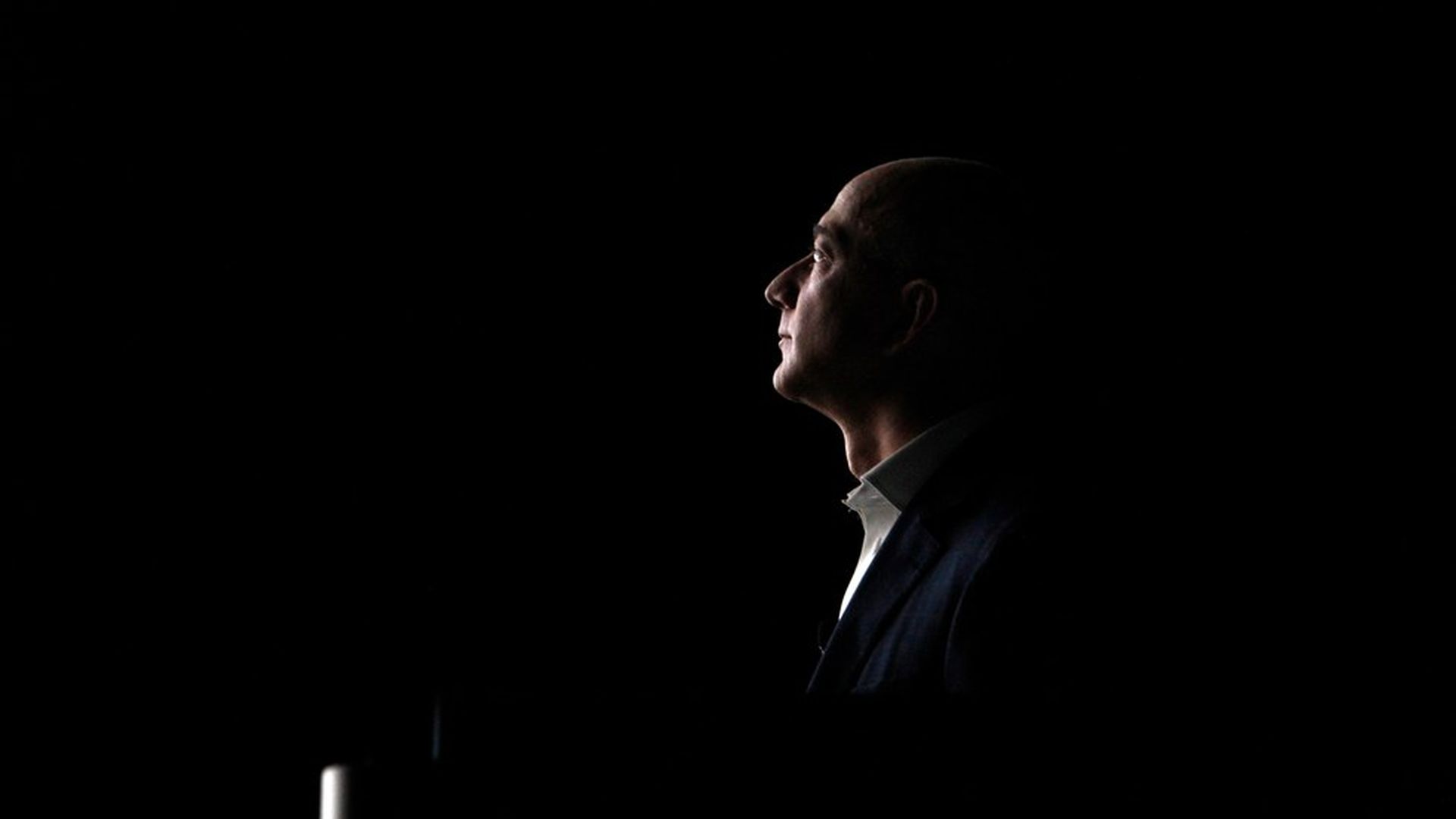Sep 21, 2017 - Technology
Amazon's approach to smart glasses sounds pretty smart
Add Axios as your preferred source to
see more of our stories on Google.

Jeff Bezos, CEO and founder of Amazon, at the introduction of the new Amazon Kindle Fire HD in 2012. Reed Saxon / AP
